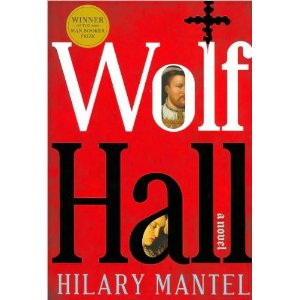 I pulled Sacré Bleu: A Comedy d'Art off the shelf at the bookstore because it has an Eiffel Tower on the spine, and I have a rather well-known weakness for the Eiffel Tower. Opening the cover revealed a "Nouveau Plan de Paris Monumental" circa 1900, further suggesting that this was a book I would enjoy - despite the theme running through the previous reviews here, I've been a francophile much longer than I've been an anglophile. The synopsis reads:
I pulled Sacré Bleu: A Comedy d'Art off the shelf at the bookstore because it has an Eiffel Tower on the spine, and I have a rather well-known weakness for the Eiffel Tower. Opening the cover revealed a "Nouveau Plan de Paris Monumental" circa 1900, further suggesting that this was a book I would enjoy - despite the theme running through the previous reviews here, I've been a francophile much longer than I've been an anglophile. The synopsis reads:In July 1890, Vincent van Gogh went into a cornfield and shot himself. Or did he? Why would an artist at the height of his creative powers attempt to take his won life...and then walk a mile to a doctor's house for help? Who was the crooked little "color man" Vincent had claimed was stalking him across France? And why had the painter recently become deathly afraid of a certain shade of blue?
These are just a few of the questions confronting Vincent's friends - baker-turned-painter Lucien Lessard and bon vivant Henri Toulouse-Lautrec - who vow to discover the truth about van Gogh's untimely death. Their quest will lead them on a surreal odyssey and brothel-crawl deep in to the art world of late nineteenth century Paris.
Oh là là, quelle surprise, and zut alors! A delectable confection of intrigue, passion, and art history - with cancan girls, baguettes, and fine French cognac thrown in for good measure - Sacré Bleu is another masterpiece of wit and wonder from the one, the only, Christopher Moore.Sacré Bleu is decidedly different than the books towards which I normally gravitate, but I was on vacation and in the mood for something lighter than Bring Up the Bodies, but with slightly more substance than Wodehouse, which were the only two options I'd brought with me. It had the immediate appeal of a fin-de-siecle Parisian setting, with the added amusement of characters with whom I was already familiar. While I've always loved the Impressionists, I spent quite a bit of time in the Post-Impressionism galleries at the Musée d'Orsay featuring van Gogh and Toulouse-Lautrec when I was there a few months ago and their famed Impressionist gallery was, of all the injustices, closed for a press event.
Sacré Bleu didn't disappoint - it even made me laugh out loud on occasion. It takes a base of factual art history and artist personalities and imagines some highly entertaining characters. Henri Toulouse-Lautrec in particular lives up to his bon vivant billing, and it was amusing to have my beloved Impressionists pop up from time to time. The mystery aspect is engaging, and Moore keeps a very good pace with it, bringing in bits of the past with a deft strategic hand. There are full color reproductions of key paintings included throughout as characters discuss them - a nice touch to prevent alienating readers who haven't studied art history or been lucky enough to see them in their current museum homes. I appreciated that these were included in-text as opposed to in a center insert, keeping them seamlessly integrated with the narrative. Amusingly, the text itself is printed in a dark blue. While certainly gimmicky, it's close enough to black to cause a double-take, but not so blue to be distracting - after the initial realization, it easily fades from consciousness.
The book opens with a bit of discussion about what color is and how it is perceived - I would have liked more of this throughout, as it is something that has always fascinated me. Moore provides a short bibliography of the books he used as research, and I may seek one out for just this purpose. He touches a bit on the Catholic Church's 13th-century move to assign "sacred blue" as the color for Mary's cloak, but does not give much of an explanation for why this was done. However, a quick google search doesn't provide much clarity either, so my guess is that they were going for artistic consistency and since high quality blue was so expensive it was easy to get artists and patrons on board. And that, really, is not a particularly romantic story.
So while he does not provide all that much in the way of color theory, Moore has written a very entertaining and engaging romp through the art world, and given it just the right intellectual depth by tying it down with some real art history.


